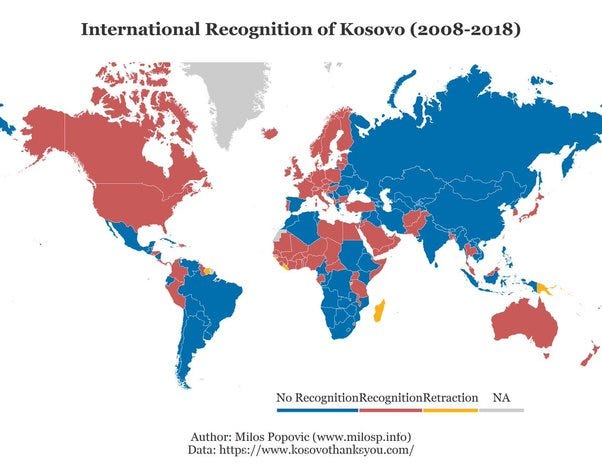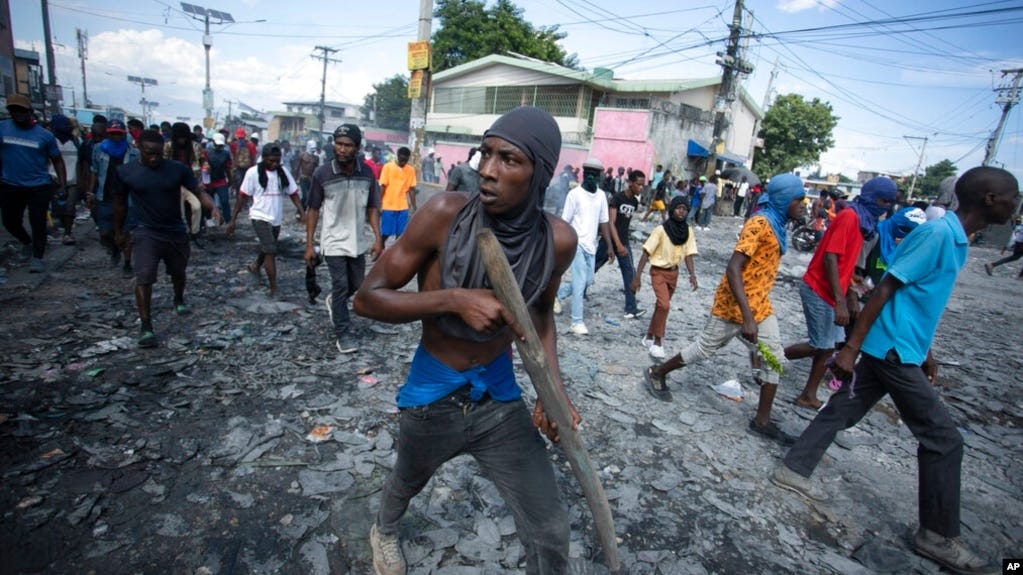Flashpoints
Where history will be made around the world in 2023
Russia instigated a war with Ukraine by further invading the country in February 2022 (Russia was already illegally occupying Ukraine’s Crimea). Ukraine was hardly in the international mainstream press in the months prior to the invasion. However, the invasion changed the course of the whole year, and likely modern history. Looking ahead to 2023, there are certain geopolitical flashpoints that you must stay abreast with in order to be well informed. Obvious countries include Ukraine, Taiwan, and Iran. Rather than focus on these three, I want to highlight places in the world where there is a wide gulf between the significance of the events unfolding and the dearth of international media coverage they receive. Like Ukraine in 2022, these geopolitical flashpoints could change the course of history.
Russian hard power has historically been a regional stabilizing force (notwithstanding episodes of menacing catastrophe). However, Russia’s war on Ukraine has greatly depleted its military capability and undermined its legitimacy as a regional power (let alone an international power). As such, quiet conflicts that relied on Russia’s backing have begun to boil over. Two such examples are the Kosovo-Serbia conflict and the Azerbaijan-Armenia conflict.
Kosovo is an Albanian-speaking country which declared its independence from Serbia in 2008 after a NATO intervention to stop a campaign of violence against Kosovo Albanians by Serbian forces. Kosovo is recognized as an independent country by 117 other countries, but Serbia continues to regard it as part of its own territory. Russia is a backer of Serbia, and likewise does not recognize Kosovo independence (nor does China). NATO has maintained a peace-keeping presence in Kosovo since its initial intervention due to this tense relationship with Serbia.
Both Kosovo and Serbia seek to join the European Union, and the EU has indicated that a prerequisite for membership is recognition of Kosovo. Complicating matters, five EU nations still don’t recognize Kosovo’s independence themselves, mostly to discourage their own domestic independence movements (eg, Spain with Catalan). Russia is a backer of Serbia and as Russia’s legitimacy has declined, blockages and shootings along the Serbia-Kosovo border have become more frequent. Significantly, in the context of Russia’s retreating influence, the EU and NATO have taken a more prominent role in brokering peace between the countries and both countries remain committed to joining the EU.

There is a parallel situation between Armenia and Azerbaijan. The two countries dispute a region controlled by Azerbaijan that is predominantly populated by ethnic Armenians. Russia has interests in both countries. Russia has a military base in Armenia, strong economic ties to Azerbaijan, and has historically brokered peace deals between the two countries. As Russian hegemony faded due to its war on Ukraine, Azerbaijan sensed weakness and in September 2022 sent troops to take positions within internationally recognized Armenian territory. The ensuing armed conflict resulted in the death of nearly one-hundred soldiers. Whereas Russia has been Armenia’s historic protector, it was instesad Nancy Pelosi who flew to Armenia to indicate support for a peaceful resolution. Similar to the Kosovo-Serbia relationship, Western forces are stabilizing bilateral conflicts as Russian influence retreats.

However, Western influence is waning in other parts of the world. Take two island nations: the Solomon Islands and Haiti. As a proxy to US influence, consider that both the Solomon Islands and Haiti were among the dozen or so countries that maintained formal diplomatic relations with Taiwan. However the Solomon Islands switched recognition from Taiwan to China, leading to mass rioting and unrest in November 2021. Meanwhile Haiti maintains its diplomatic relationship with Taiwan, but is itself in a state of chaos with still no president despite the prior president’s assassination in July 2021 and daily life controlled by rival violent gangs.

Since 2003, Australia has been a regional security partner to the Solomon Islands, providing financial aid as well as sending thousands of troops during times of unrest. Likewise, during the protests in November 2021 over the switch in diplomatic relations to China, the Solomon Islands government requested assistance from Australia. Australia obliged by sending police and military who successfully restored order. Yet as a sign of waning Western influence, the Solomon Islands government turned next to a new security partner: in March of 2022, the government signed a security agreement with China that would allow Chinese military and naval presence on the islands. Australia, New Zealand, and the United States voiced concerns with this arrangement.
The United States is an important partner of Haiti, providing developmental assistance, promoting democratic institutions, and as a major source of trade and tourism. However, both the US and UN have a contentious past history of interventions in Haiti, for example, sending a multinational force to restore democracy after a 1994 military coup.
Without a president following the assassination, the Haitan government installed Ariel Henry as prime minister, who was an ally of the deceased president. The United States indicated support for Prime Minister Henry, but his legitimacy is protested by many Haitians given he was never elected. Rising fuel prices, a major earthquake, and spreading cholera have contributed to general chaos and gang violence across the country. Overwhelmed by these crises, Prime Minister Henry has formally asked for another foreign military intervention to restore stability. Despite the gravity of the crisis in Haiti, the US and UN remain divided on whether to intervene.
There are a lot of limitations with this discussion. First, this is a cursory overview of each conflict. Yet I hope that it is a basis on which to build more knowledge if you have an interest and as new events transpire. Second, the citizens in each of these countries deserve to be considered as ends in themselves rather than just an actor in a greater geopolitical narrative. Those limitations aside—each of these countries is greatly under-appreciated in the international press given their significance in world affairs and the future impact that these conflicts may hold. I don’t know how any of these individual flashpoints will play out, but each has the potential to change to course of history.



